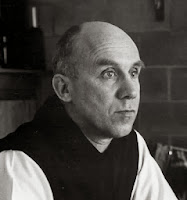Under the pretext that what is "within" is in fact real, spiritual, supernatural, etc., one cultivates neglect and contempt for the "external" as worldly, sensual, material, and opposed to grace. This is bad theology and bad asceticism. In fact, it is bad in every respect because instead of accepting reality as it is, we reject it in order to explore some perfect realm of abstract ideals which in fact has no reality at all.
Very often the inertia and repugnance which characterize the so-called "spiritual life" of many Christians could perhaps be cured by a simple respect for the concrete realities of every-day life, for nature, for the body, for one's work, one's friends, one's surroundings, etc.
A false supernaturalism which imagines that "the supernatural" is a kind of realm of abstract essences (as Plato imagined) that is totally apart from and opposed to the concrete world of nature offers no real support to a genuine life of meditation and prayer. Meditation has no point unless it is firmly rooted in life.
Quote from Contemplative Prayer (Doubleday/Image Books, 1971) as published in Devotional Classics: Selected Readings for Individuals and Groups, edited by Richard J. Foster and James Bryan Smith


